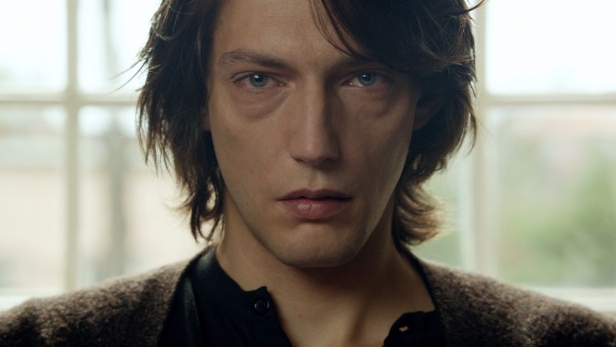The final film from director Andrzej Żuławski, who passed away in February this year at the age of 75, Cosmos arrives ready-made with an aura of both mystique and anticipation: both for being an adaptation of Witold Gombrowicz’s infamously complex novel, and for its pre-release acclaim. As it turns out, both feelings are justified: it is indeed an unwieldy, unforgiving beast, but at the same time there’s something magnetic about it that makes it hard to turn away.
Primarily focusing on two young men: Wiltold (Jonathan Genet) and Fuchs (Johan Libéreau) as they retreat to a French guesthouse – ostensibly to get away from it all – only to bear witness to a number of unusual incidents (various animals being found hung on trees, the guesthouse owner literally freezing when she gets too worked up), to say it’s tricky to follow is an understatement. Consecutive scenes seemingly bear little narrative similarities to each other, and the dialogue is odd at the best of times, yet somehow it works.
The whole production feels more like a non-musical opera than a film, various acts crescendoing before returning to focus on more mundane activities. It very quickly becomes nigh-on impossible to follow from a narrative standpoint, leaving us instead to centre on the more intimate character moments: the capering and pratfalls of Wiltold (who Genet is utterly hypnotic as) and the lovely, besotted housemaid Catherette (Clémentine Pons). Is it a story of a dysfunctional family forced to find a common ground, or something deeper entirely? It totally depends on your interpretation of events.
Indeed, that seems to be the meaning behind the story: give it the patience that such an ambitious production like Cosmos deserves, and somewhere down the line you might be able to draw meaning from it. If not, then it’s tricky not to be ensnared by the beguiling yet intriguing nature of it all.
